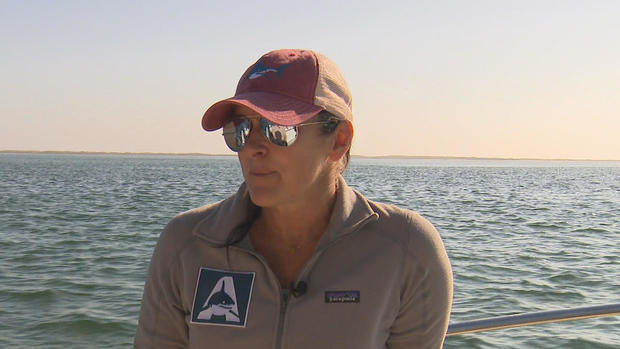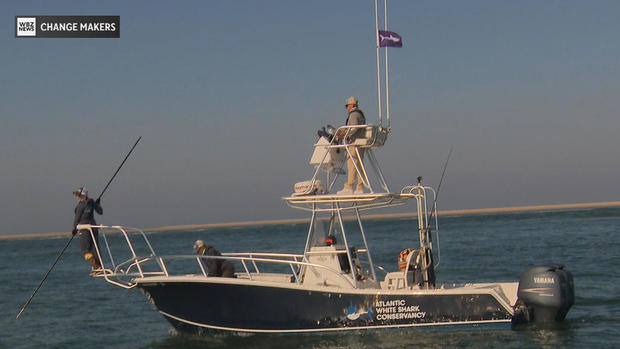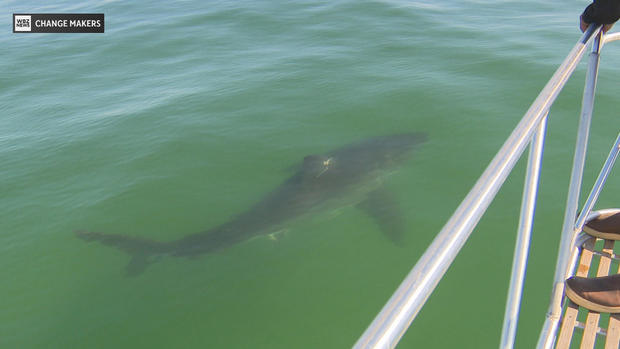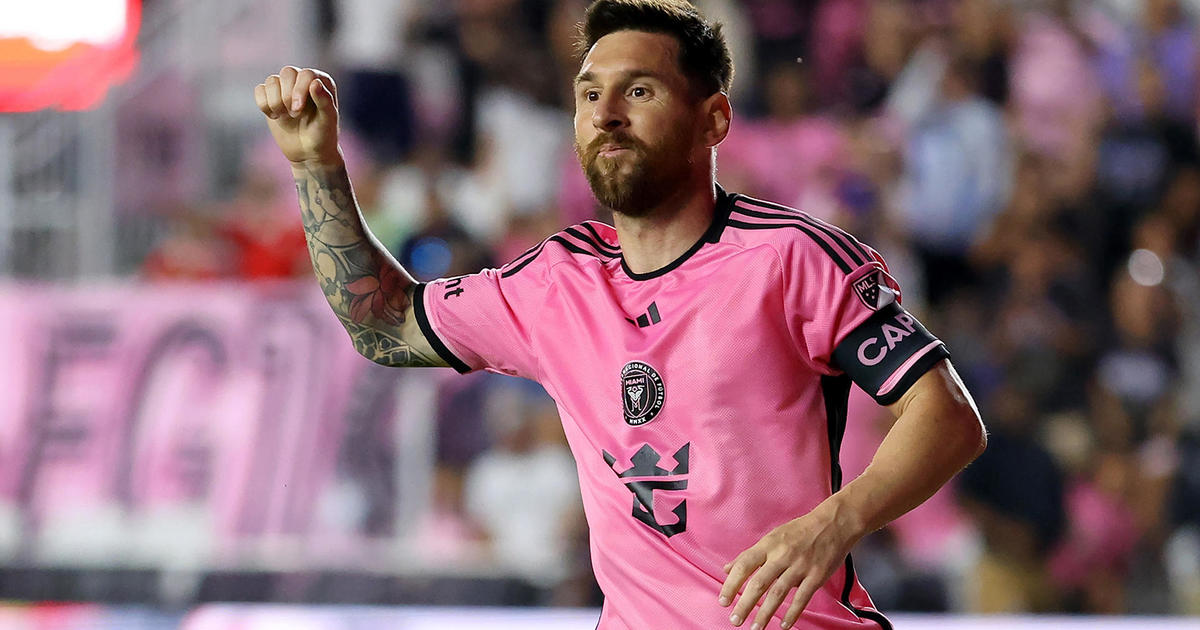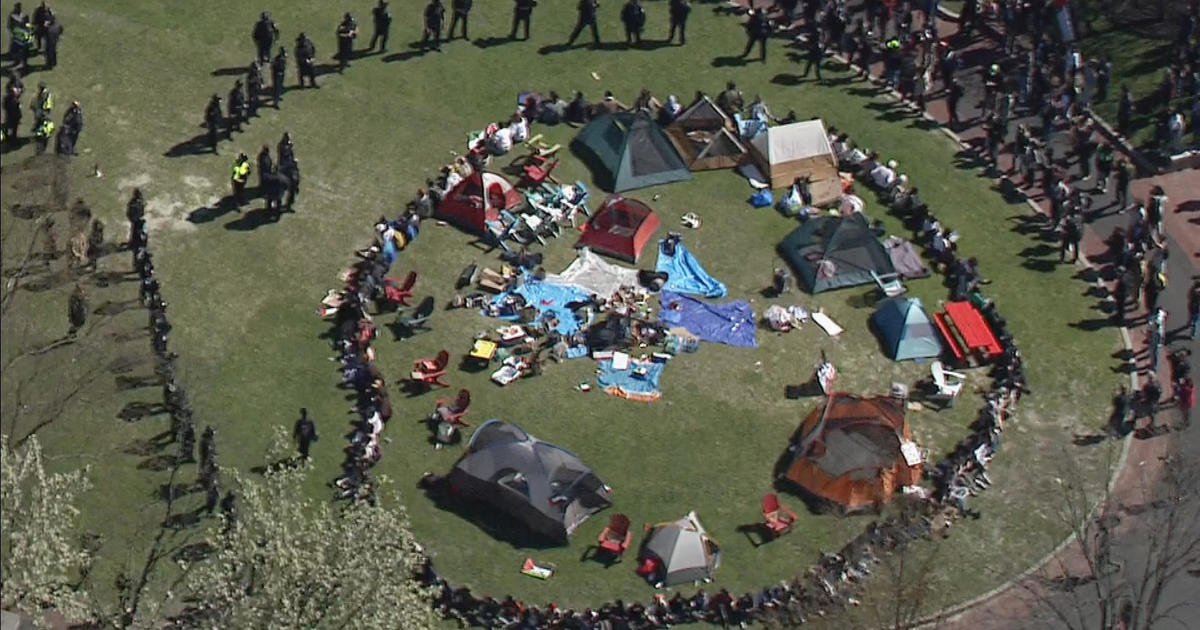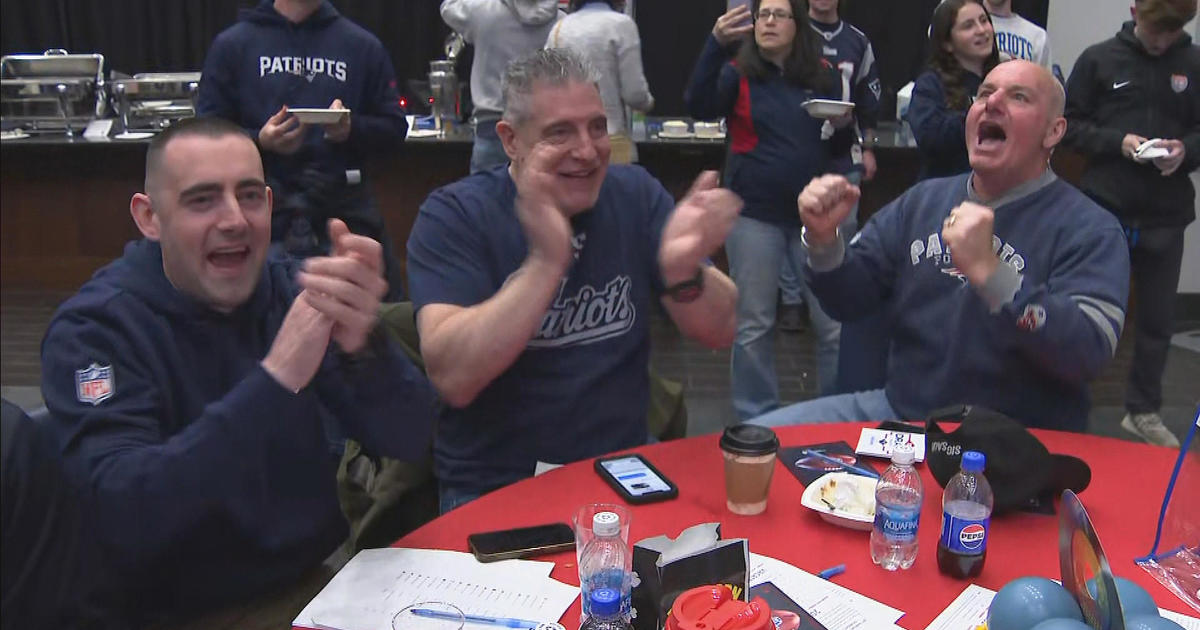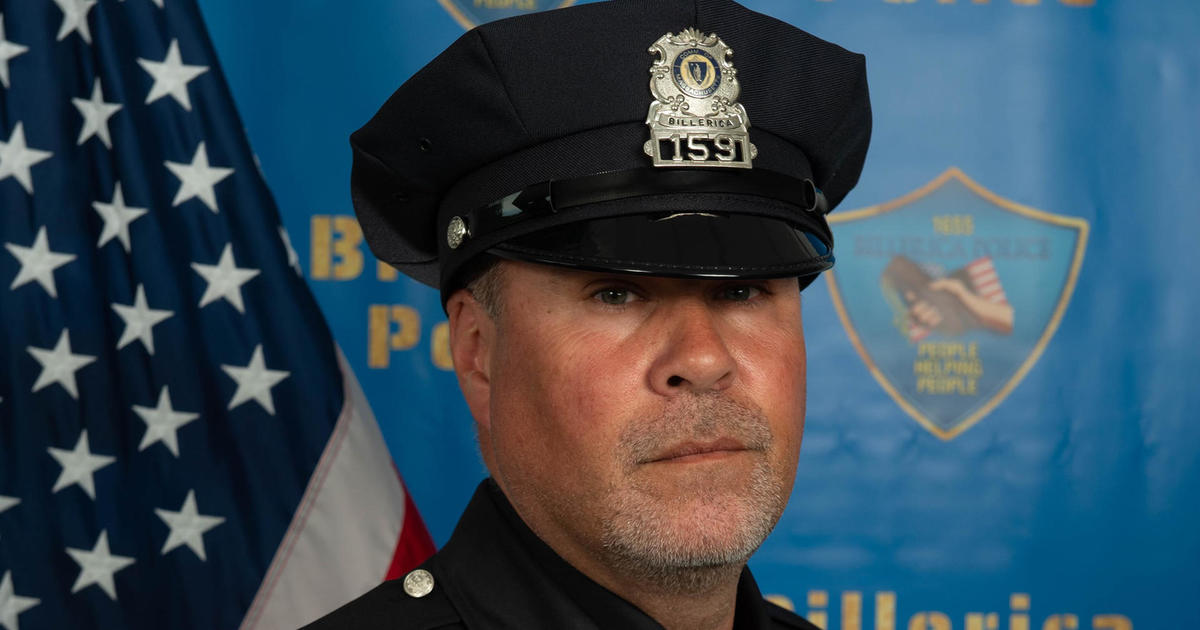Cynthia Wigren launched Atlantic White Shark Conservancy to support research, improve public safety
CHATHAM - In 2010, Cynthia Wigren took a vacation that changed her life and laid the foundation for an organization that is now the biggest funder of white shark research in Massachusetts. Back then, Cynthia was working for an online platform in the energy sector and living in Amesbury.
She frequently traveled for work and, with her husband Ben, sought opportunities to see animals in the wild. When she and Ben traveled to South Africa, they booked a cage dive to observe great white sharks. Cynthia admits, she was nervous. "I went into that experience thinking it was going to be incredibly scary because I definitely grew up with-watching-the movie 'Jaws,'" Cynthia said.
But what happened when she slipped into the water with her mask and oxygen surprised her. "I was mesmerized. There was no fear. It was just all fascination and so much excitement. It was really game-changing," Cynthia said. "For me, for my perception of that species, and then ultimately in my life and making a huge shift career-wise."
Her fascination was further piqued by the discovery of white sharks off Cape Cod. An abundant grey seal population gave the apex predators an ample food source.
Dr. Greg Skomal of the Department of Marine Fisheries had tagged several sharks. Sharks were suddenly on everyone's radar. Cynthia followed Dr. Skomal's work with great interest. When they spoke in 2012, she was surprised to learn that he did not receive state funding for his tagging work or financial support from a non-profit. He relied on outside funding (private donations) for work that Cynthia knew would only become more important. "Even though it was early on, you knew the significance of having this species off our coast," Cynthia said.
She decided to create a non-profit to fund the work and sought guidance online. "I searched on Google 'how to start a non-profit' and we did everything ourselves," she said. Cynthia quit her job and moved from Amesbury to Cape Cod. In late 2012, she and Ben received their 501c3 certificate. The Atlantic White Shark Conservancy funded its first tagging trips in 2013.
Dr. Skomal points to Cynthia as the difference-maker whose initiative and leadership likely saved the research program. "There just wasn't a lot of support coming from other sources, including the state," he explains. "Her establishing the conservancy, injecting that money into the research program really woke it up."
Since then, Dr. Skomal and the conservancy's research team has identified roughly 600 sharks and tagged more than 300 off Cape Cod. Beyond the thrill of observing the creatures in their natural habitat, the research informs conservation efforts and public safety initiatives. "The more the public knows and understands this species, the more they see it as an important component of the marine ecosystem... and something we need to preserve, conserve and live with," Dr. Skomal says before looking toward the water where pilot Wayne Davis has spotted another shark.
On this glorious day in October, the team is ecstatic. Davis spots so many sharks that the boat is in almost-constant motion. Cynthia is thrilled to share the experience. These days, her fundraising and operations work keeps her primarily on land. If there were ever a day to be on the water, this is it. It is unusually warm and, until the fog rolls in late in the day, visibility couldn't be better. The first shark the team spots is 13-feet long. "It's an exciting time of year," Cynthia explains, "It's quieter on the water. And we see some big sharks in the area." In five hours, they spot ten white sharks off Chatham. Dr. Skomal tags four (he almost tagged a fifth, but the tag fell off) and cheers on a second AWSC team collecting tissue samples from sharks on a separate boat.
The camaraderie between the team members is real. Captain John King navigates the shallow water based on Davis' directions. Research Technician Victoria Migneco keeps track of the tag numbers as volunteer Brian Hanson shouts them out. Dr. Skomal mans the front of the boat on a long, railed area over the water they call the pulpit. Cynthia is beaming. "It's been really exciting-an incredible journey from where we started and where we are today," Cynthia said. "Dr. Skomal has just been a phenomenal scientist to support. I kind of took a chance when I had that conversation with him and left my career to do this. But we couldn't be supporting a better person."
The team's praise for Cynthia is just as effusive. Brian Hanson contacted Cynthia years earlier to fund the team's research. She invited him to join them for a day on the water. He was hooked. "I fell in love with the research and the team and the people. Now I'm a full-time volunteer-on call from June to mid-November," Hanson said.
Hanson also joined the AWSC Board of Directors. "We owe everything to Cynthia," he says after handing Dr. Skomal a freshly-prepared tag. "One of the most common e-mails or texts I'll send to Cynthia after we have a great day on the water is NONE OF THIS WOULD BE HAPPENING WITHOUT YOU."
AWSC's efforts to enhance public safety now include a Shark Smart beach program, an educational program in schools, outreach centers that are open to the public in Chatham and Provincetown and the popular Sharktivity app. The organization is part of a regional shark working group and collaborates with all of public safety groups on Cape Cod. People know where sharks have been spotted and where not to go in the water because of AWSC.
"Really a huge focus is-how can we co-exist," Cynthia says. "There might be some inconveniences having these animals off our coast. But they have a place there. A healthy marine environment is good for everybody. Working toward coexistence in a healthy way is really what we're striving for."
That part of AWSC's mission relies on education. In 2014, Cynthia co-founded the organization's Gills Club after meeting girls who shared her fascination with sharks. The STEM-based education initiative provides girls with an opportunity to connect with some of the world's top female shark scientists and experience hands-on learning. In 2023, for the first time, AWSC presented two $10,000 college scholarships to Gills Club members.
Admiring white sharks from the boat, I ask Cynthia what she wants people to know about sharks. "What I'd love people to know about great white sharks is that they're not the man-eating monsters people have made them out to be," she said.
She says that, sadly, the "Jaws" mentality still exists; a myth she and the conservancy are working to change. "We really work toward showing the beauty of the animal, the unique aspects of the animal," she said. "The importance of the species."
